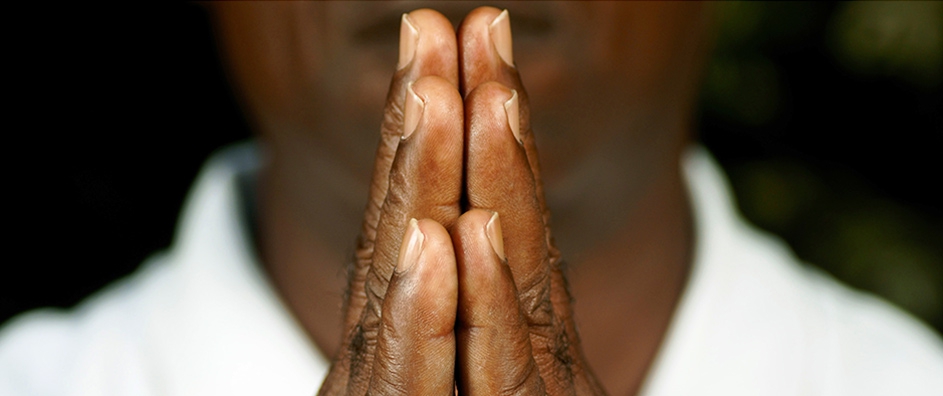The views expressed in our content reflect individual perspectives and do not represent the authoritative views of the Baha'i Faith.
To express his gratitude for the favors of God man must show forth praiseworthy actions. In response to these bestowals he must render good deeds, be self-sacrificing, loving the servants of God, forfeiting even life for them, showing kindness to all the creatures. – Abdu’l-Baha, The Promulgation of Universal Peace, p. 236.
In the same way that the essence of man is the soul, the soul of this world is the subtle growth of spirituality, heavenly morals, divine favors and sacred powers. – Abdu’l-Baha, Divine Philosophy, p. 128.
Thus, spirituality is the greatest of God’s gifts… May you, one and all, increase daily in spirituality, may you be strengthened in all goodness, may you be helped more and more by the Divine consolation, be made free by the Holy Spirit of God, and may the power of the Heavenly Kingdom live and work among you. – Abdu’l-Baha, Paris Talks, p. 111.
When we think about transcendence, most of us probably envision some kind of spiritual ecstasy–going beyond the physical to the purely mystical and supernatural.
That’s one definition—but the positive psychology movement views transcendence as one of the primary character strengths and virtues we can develop and use right here in this world.
Positive psychology and the Character Strengths and Virtues Handbook define transcendence as the appreciation of beauty and excellence, gratitude, hope, humor, and spirituality.
All the great Faiths exalt these character traits and virtues.
They begin with appreciation and gratitude. The Baha’i teachings remind us that we owe our existence to our Creator:
Therefore, you must thank God that He has bestowed upon you the blessing of life and existence in the human kingdom. Strive diligently to acquire virtues befitting your degree and station. Be as lights of the world which cannot be hid and which have no setting in horizons of darkness. Ascend to the zenith of an existence which is never beclouded by the fears and forebodings of nonexistence. – Abdu’l-Baha, The Promulgation of Universal Peace, pp. 89-90.
 But appreciation and gratitude have practical benefits, too, which multiple studies have proven. In one such study at the University of California at Riverside, psychologists have noted a major increase in overall human happiness from their test subjects who kept a “gratitude journal.” When participants took the time to conscientiously count their blessings once a week, their thankfulness diaries significantly increased their overall satisfaction with life. A control group that did not keep journals had no such gain. At other universities, researchers have found that gratitude exercises improve physical health, raise energy levels and even have the ability to relieve pain and fatigue.
But appreciation and gratitude have practical benefits, too, which multiple studies have proven. In one such study at the University of California at Riverside, psychologists have noted a major increase in overall human happiness from their test subjects who kept a “gratitude journal.” When participants took the time to conscientiously count their blessings once a week, their thankfulness diaries significantly increased their overall satisfaction with life. A control group that did not keep journals had no such gain. At other universities, researchers have found that gratitude exercises improve physical health, raise energy levels and even have the ability to relieve pain and fatigue.
Positive psychologists have learned, however, that the most powerful and reliable boost to human happiness comes from performing acts of altruism or kindness. Whether helping a child with her education, visiting the sick or the elderly, feeding the poor or calling a relative or a friend, acting kindly and transcendently may represent the highest human virtue. Service to others, the Baha’i writings repeatedly say, distinguishes us from every other life form and gives us supreme happiness:
God has given us eyes, that we may look about us at the world, and lay hold of whatsoever will further civilization and the arts of living. He has given us ears, that we may hear and profit by the wisdom of scholars and philosophers and arise to promote and practice it. Senses and faculties have been bestowed upon us, to be devoted to the service of the general good; so that we, distinguished above all other forms of life for perceptiveness and reason, should labor at all times and along all lines, whether the occasion be great or small, ordinary or extraordinary, until all mankind are safely gathered into the impregnable stronghold of knowledge. We should continually be establishing new bases for human happiness and creating and promoting new instrumentalities toward this end. How excellent, how honorable is man if he arises to fulfil his responsibilities; how wretched and contemptible, if he shuts his eyes to the welfare of society and wastes his precious life in pursuing his own selfish interests and personal advantages. Supreme happiness is man’s, and he beholds the signs of God in the world and in the human soul, if he urges on the steed of high endeavor in the arena of civilization and justice. – Abdu’l-Baha, The Secret of Divine Civilization, pp. 3-4.
















Comments
Sign in or create an account
Continue with Googleor